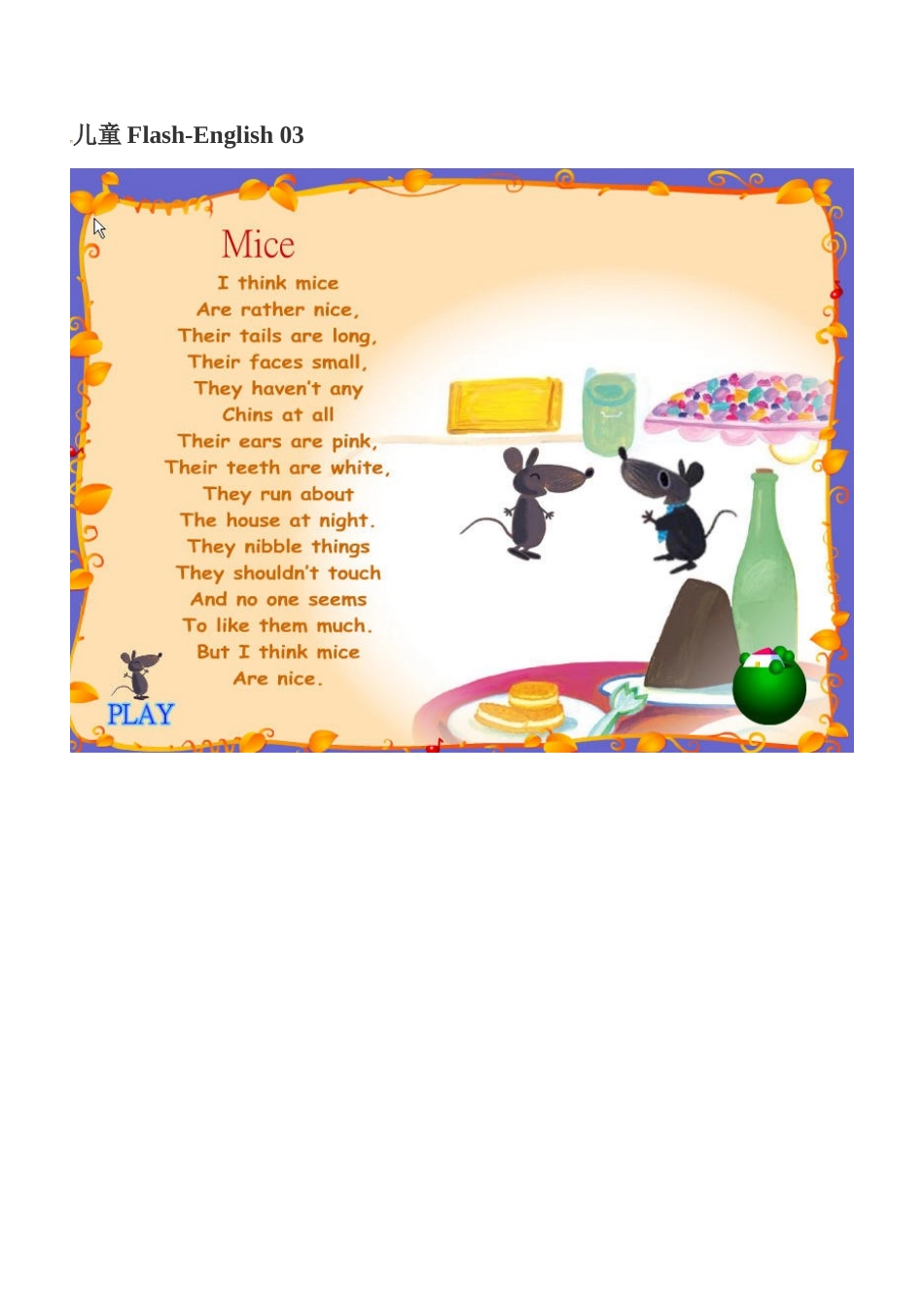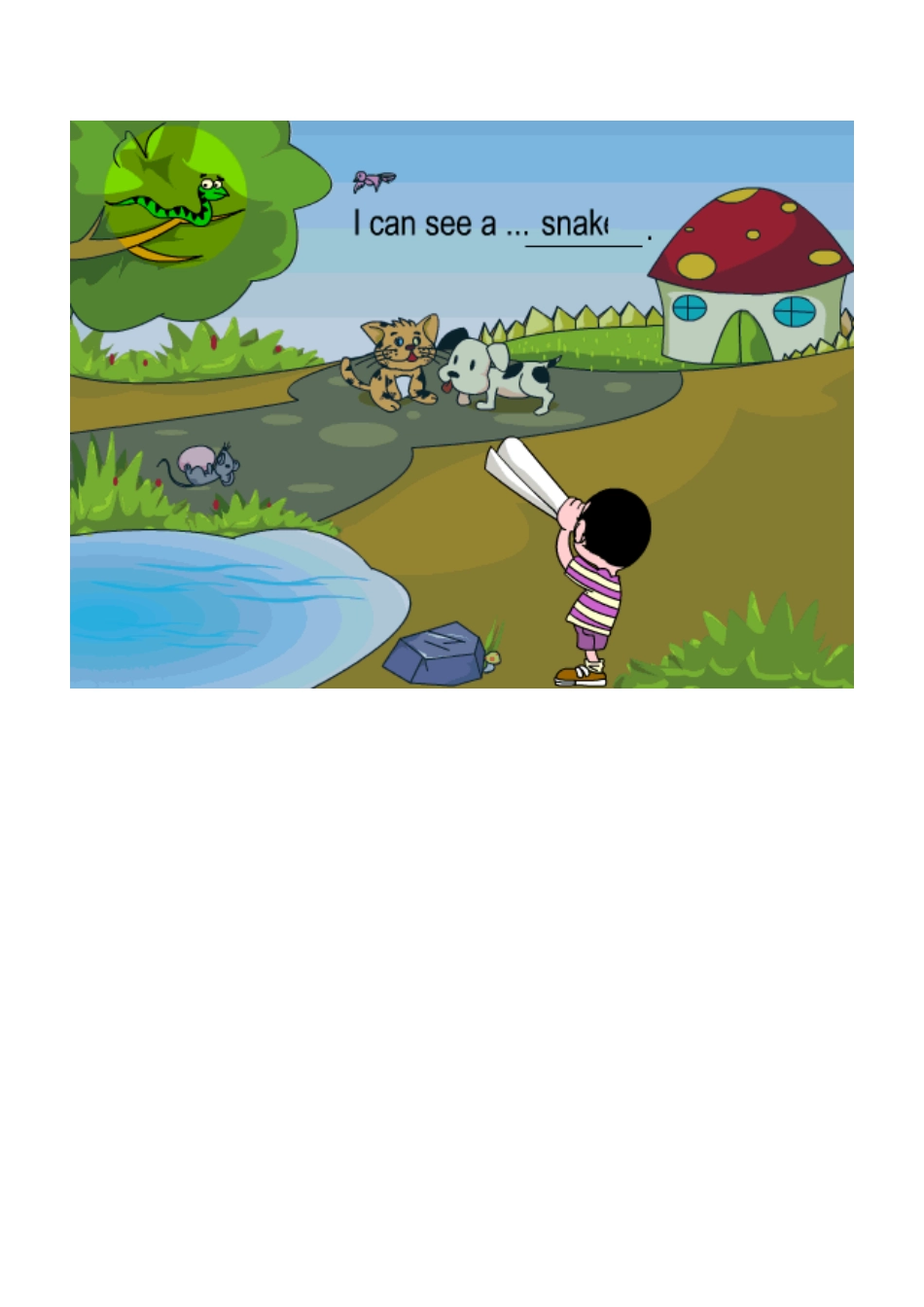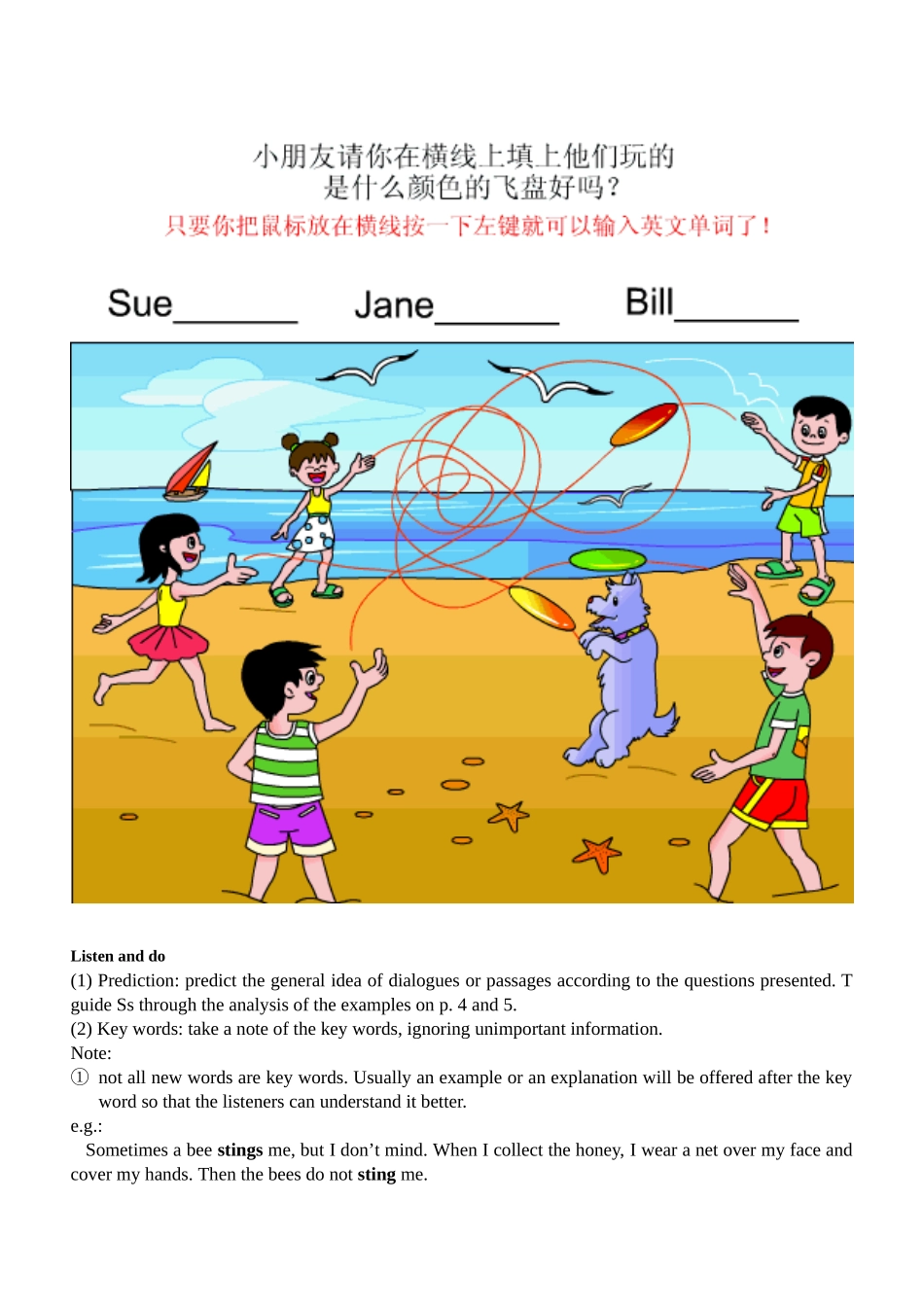儿童 Flash-English 03Listen and do(1) Prediction: predict the general idea of dialogues or passages according to the questions presented. T guide Ss through the analysis of the examples on p. 4 and 5.(2) Key words: take a note of the key words, ignoring unimportant information.Note:① not all new words are key words. Usually an example or an explanation will be offered after the key word so that the listeners can understand it better. e.g.: Sometimes a bee stings me, but I don’t mind. When I collect the honey, I wear a net over my face and cover my hands. Then the bees do not sting me.② many words in the dialogue or passage are not very important. So it doesn’t matter much if you haven’t heard them clearly.e.g.: Peter was very xxx and was xxx to the hospital. After a short examination the doctor xxx to the nurse that peter was dead. “I’m not”, whispered Peter weakly from his bed. “Shut up”, hissed the nurse, “or do you think you know better than the doctor?”Peter xxx xxx xxx xxx was xxx to the hospital. xxx xxx xxx the doctor xxx to the nurse that peter was dead. “I’m not”, xxx Peter xxx xxx xxx xxx. “Shut up”, xxx the nurse, “or do you think you know better than the doctor?”[Obviously, with several or more words missed in the joke, you can still understand it quite well.]


